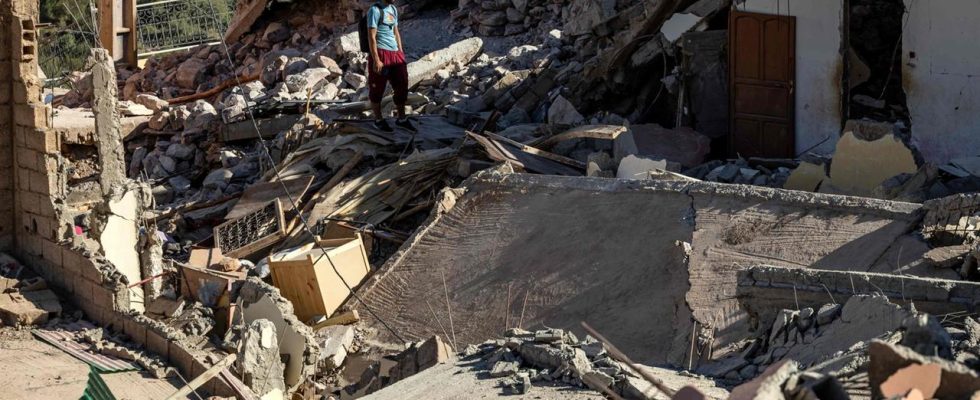It’s a race against time: After the earthquake in Morocco, foreign helpers are now also supporting the search for survivors. Morocco’s decision to accept offers of aid from only four countries is causing debate.
After the severe earthquake in Morocco, helpers from Spain and Great Britain started their work. They are currently supporting local emergency services in affected areas, the Moroccan news agency MAP reported.
Britain sent 60 search and rescue experts with equipment and four search dogs to Morocco, British Ambassador Simon Martin announced on the social media platform X. A special unit of the Spanish military with search dogs also set off into the earthquake area on Sunday.
While people in Marrakesh and other places spent the third night in a row in the streets for fear of further aftershocks, helpers tried to reach remote mountain villages. Bulldozers have to be used to clear landslides in the rugged terrain so that ambulances can get through, as the online newspaper “Morocco World News” reported. Survivors of the severe earthquake described the smell of corpses coming from the rubble of the houses.
For the emergency services, it’s a race against time: experts give a guideline of 72 hours during which a person can survive at most without water. According to the Interior Ministry, the number of deaths has now risen to 2,497.
Help requested from only four countries
Meanwhile, there was speculation about the fact that the Moroccan government officially only asked four countries for help, despite offers of help from several countries – including Germany. According to the Interior Ministry, in addition to Spain and Great Britain, they have responded to offers of support from the “friendly countries” Qatar and the United Arab Emirates.
The ministry said authorities had carried out a detailed assessment of local needs. It was taken into account that a lack of coordination in such situations would lead to adverse results, reported the Moroccan news site Hespress.
Discussion especially in France
This decision caused a lot of discussion, especially in France, where many Moroccans live. The French daily “Libéracion” asked: “Did the Kingdom want to take its time to avoid chaos in humanitarian aid, as it was accused of after the Al Hoceima earthquake in 2004? Did the size of the task overwhelm it? especially since the king was absent when the drama occurred? Or did he consciously decide to stall those with whom there was a diplomatic dispute, such as France?”
French Foreign Minister Catherine Colonna rejected the idea that tensions between the two countries could be the reason for this in an interview with broadcaster BFMTV. Morocco is a sovereign country and initially decided to seek help from other countries. Over 60 countries have offered support and France remains available to provide short and medium-term assistance, the minister said. Interior Minister Gérald Darmanin made similar comments.
Colonna announced financial aid of five million euros. The aid should benefit local Moroccan, international and French aid organizations.
Germany’s offer still stands
Even if the government in Rabat has not yet accepted the German offer of help, Berlin is still upholding it. Government spokesman Steffen Hebestreit did not want to comment on the reasons for the Moroccan government’s hesitation and added: “We stand by these offers of help.” If Morocco accepts the offer, “then we will also deliver,” said Hebestreit.
A spokesman for the Foreign Office said: “Political reasons can be ruled out here.” The Moroccan government thanked the offer but has not yet accepted it. There may be organizational or logistical reasons for this on the Moroccan side, said the foreign ministry spokesman. “I am sure that they have thought very carefully about which emergency services can be used where.” The state of diplomatic relations with Morocco is “good”.
Government sets up relief fund
The Moroccan government itself wants to set up an aid fund for the suffering population. This was intended, among other things, to cover costs for securing damaged houses, Hespress reported, citing a government spokesman. There was no information about the amount of the fund. It should be made up of money from public institutions and voluntary private contributions, it said.
The 6.8 magnitude earthquake struck Morocco on Saturday night. More than 2,400 people were injured. According to the authorities, in addition to local hospitals and ambulance services, more than 1,000 doctors and 1,500 nurses were mobilized to provide medical care for those affected.
According to the World Health Organization (WHO), more than 300,000 people in Marrakech and surrounding areas have been affected by the earthquake.

